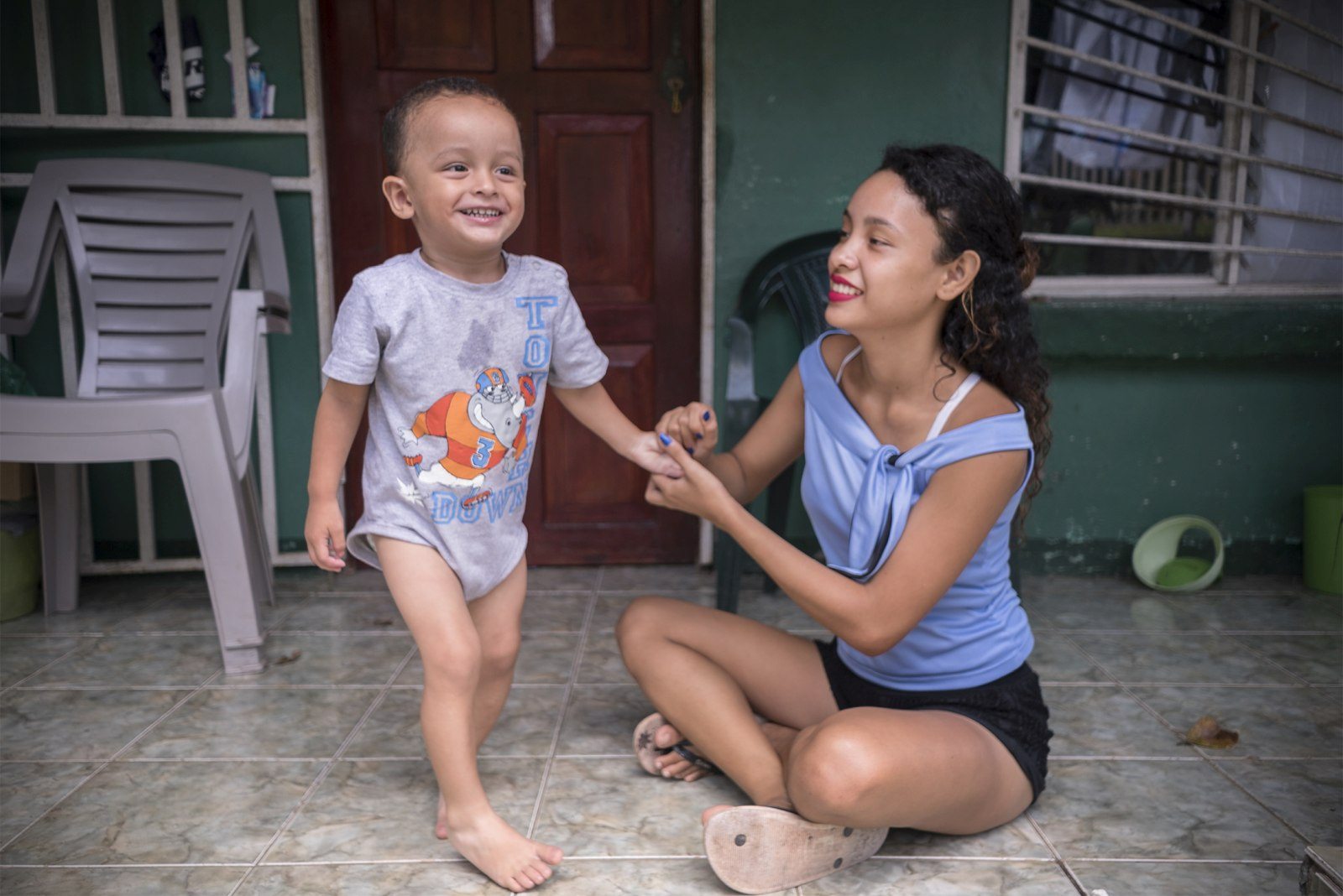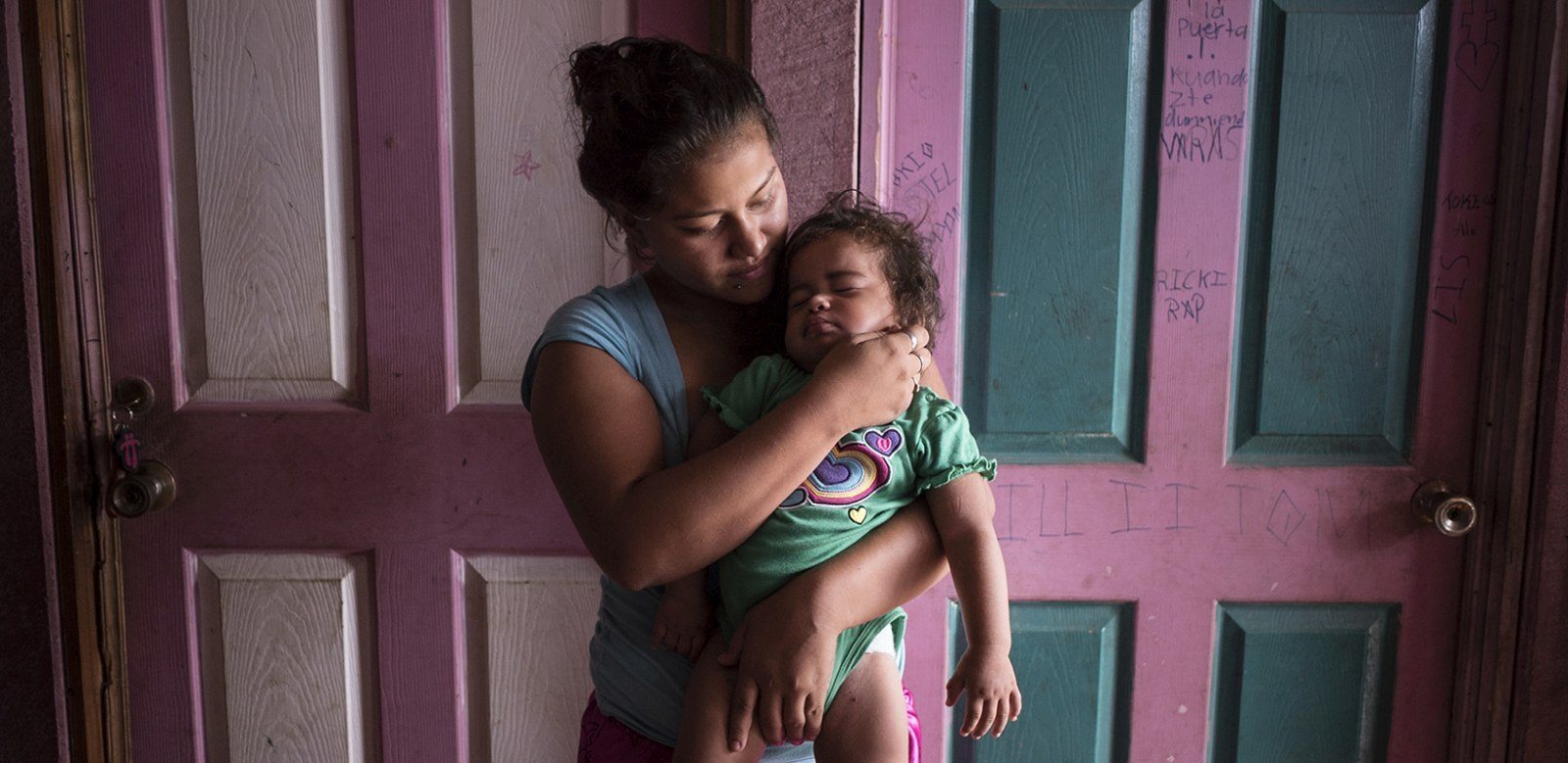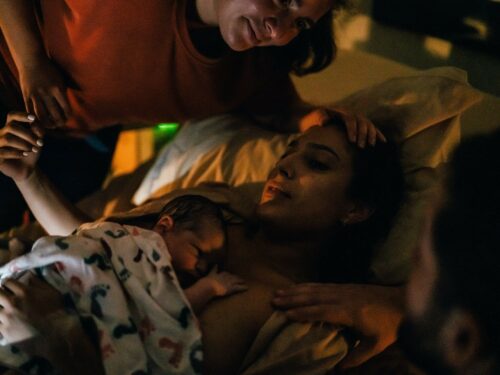
Cindy Peña had Franciny when she was 14 and in high school. “If my parents had me on birth control when I was younger, maybe I wouldn’t have gotten pregnant as a teenager,” she says. Peña is convinced that it’s best for her adolescent daughter to begin using birth control methods starting now.
She knows that a lot of parents “think poorly” of a mother who allows her daughters to get a birth control implant when they’re still underage because they think it’s “giving them permission to have sex.”
But Peña doesn’t care what others think. She believes that this method is a wise move from the Costa Rican Social Security System (CCSS, or La Caja) in an effort to reduce teenage pregnancies in La Cruz.
In 2014 in this canton, 26 out of 100 pregnancies that La Caja attended to were from adolescent mothers. This rate is higher than the national average, which was 16%.
An investigation by The Voice of Guanacaste showed how difficult it is to reduce the rate of teenage pregnancies in the province: in 2004, it was 22.4 per 1,000 for 10-17 year olds; in 2014 the rate declined very little to 21.8.
Read also: Guanacaste has the third-highest rate of teenage pregnancies
This past May, the CCSS began a pilot program in vulnerable cantons around the country to place the implants and reduce pregnancies in underage girls. From then to this August they have implanted more than 400 devices in La Cruz, their pilot canton. Fifty of them have been implanted in adolescent girls.
An ounce of prevention
Franciny Peña, Cindy’s daughter, is one of the adolescents who have an implant in her left arm. At 14, talking about birth control methods with a stranger makes her feel uncomfortable.

Alison Arias Huete lives in San Dimas, which is also in La Cruz. She got pregnant at 16 and says that only after that did they start using birth control with her boyfriend. She learned of the implant this past May and she didn’t think twice because previously she had to pay ¢5,500 per month at the pharmacy to get a birth control injection. Alison recognizes that her life changed with Angel’s arrival – her two-year-old baby – but her goals of graduating high school and studying law haven’t changed. “I recommend the implant. For me, it’s effective and I think it will become popular because it’s free, easy to place, isn’t noticeable, and lasts three years,” said Arias.
Her household is distinct because ever since she had her first period, her mother has spoken clearly with her about the subject and on how to have a responsible sex life.
After reading and talking with doctors and social workers from the local Ebais, Cindy was convinced and decided that not only would Franciny have the device implanted to prevent pregnancy, but that she would, too.
“They day I got [the implant] I went with three high school classmates. We all were nervous and worried if it would hurt,” remembers Franciny.
It hurt a little, and she had a slight headache and nausea for the first few days. Since then she hasn’t felt any pain or side effects, although some women experience a light period or irregular periods.
“I feel good now, and more comfortable with the implant. I’d do it again,” she says.
How it works
The subdermal implant contains the hormone etonogestrel, which keeps the egg from being fertilized by sperm for up to three years.
It’s a four-centimeter long plastic device in a tube that is implanted in the forearm.
The implanting process takes less than five minutes and can be removed whenever the woman wants.
According to the CCSS, the implant prevents 99.9% of pregnancies, although it does not prevent sexually transmitted infections (STIs), which is why it’s important to educate the girls to use a condom in addition to the implant.
“Implant use has boomed in La Cruz,” said Javier Coronado, the doctor in charge of the Caja’s Regional Health Service. According to Coronado, each day brings more young women to the local Ebais asking for this option.







Comments